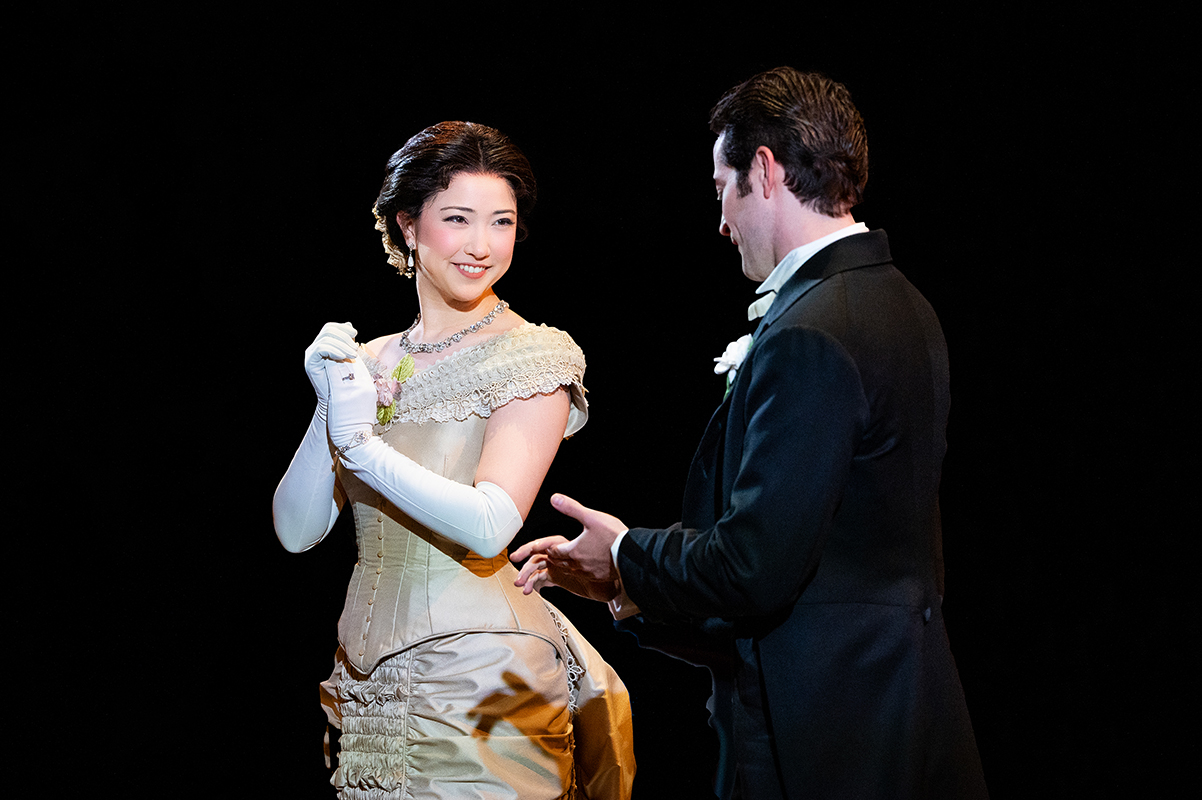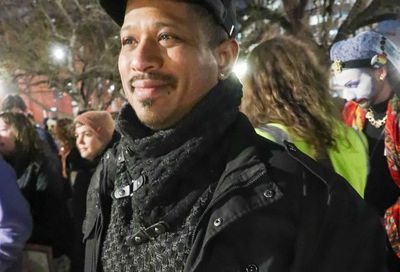Unhappy Campers
''Camp David'' offers a subject well worthy of a revisit
An ideal evening at the theater for precocious high schoolers and the politically curious, Lawrence Wright’s Camp David is a primer on President Jimmy Carter’s brokering of an uneasy peace in the Mideast conflict as it stood in 1978. Written with mild humor, a certain passion and a storyteller’s talent, this lesson in the vital and complex problems of this political and religious morass slips down with the ease of a geopolitical gel cap.
Though it may not be overflowing with edge or insight, it’s still no mean feat considering Lawrence covers not only the crisis as it stood then (both for the Mideast and Carter’s presidency), but also the contemporary and ancient history that led to it and a generous dose of the personal histories of the key players.

Photo by Teresa Wood
Of course some hearing this will rightly wonder whether this ambition invites preachiness or over-simplification. Well, the answer falls somewhere between, “You can’t please all of the people all of the time,” and “Yes.”
There is no doubt that for some audience members — the grey-haired, news-junkie, jaded Beltway-insider types in particular — Lawrence’s potted takes on the posturing and negotiations will all seem a little too contrived and sanitized. These are the same folk who may find the frequent injections of personal anecdote — each with a painfully obvious subtext — tiresome, if necessary. Thus, although Lawrence works hard to mitigate the simplifications by inserting contradictions, and somewhat tempers the educational narrative with humor, his goal won’t work for everyone. Especially not for those who like their theatrical politics to operate on the plane of, say, Frost/Nixon.
But for anyone who wants a very palatable and reasonably frank discussion of the barriers to compromise in the Mideast (still very much in existence today) or simply a trip down a particularly interesting memory lane, this piece will serve and compel.
And however you view the vehicle, the cast makes a strong go of it with Richard Thomas delivering a Jimmy Carter that smartly never goes overboard into a political impression. Sporting an accent that only nods toward Carter’s thick Georgian drawl, Thomas avoids caricature by trying instead to describe a more universal man; one with a lot of power but few answers. He is confident, tortured, driven, proud and very human. If his dissimilarity to Carter distracts, think of him as less of a portrait of the man and more as Lawrence’s take on what it took. Although some will want more, most will agree that the architecture is intact.
Matters are a little more complex when it comes to Lawrence’s rendering of Menachem Begin and Anwar Sadat, the two leaders who come to the seclusion of the presidential retreat (Camp David), to consider negotiating a peace. Since any student of political history will know how the story ends, this is really about what may or may not have happened as these great men collided and wrangled on behalf of their people. Both had much to gain and much to lose. But with no media allowed, their negotiations were off-stage — at least until any agreement was reached.
Unfortunately, in the writing of these two, Lawrence’s urge to educate looms large and thus, by necessity, the characters become far too obvious. In ways that are less than subtle, we learn that both men were the products of difficult lives and deep cultural traditions that informed their attitudes toward compromise with one another. Though the racism is delivered in careful (often humorous) context and the personal anecdotes are sometimes informative, it is all a bit too color-by-numbers. Hence the initial thought that this play will work well for the educated young, if not the politically initiated.
Still, as Begin, Ron Rifkin confirms his theater chops with a nicely pitched interpretation of Lawrence’s not overly subtle characterization. Rifkin starts with a credible accent and goes on to layer his Begin with a passion, fear and defiance that goes a long way to color the intractable man Lawrence offers. It is Rifkin’s consistent and well-drawn picture of the person behind Begin’s immovable position that makes his 11th-hour compromise all the more affecting. Who knows if it really went down that way? It captures the impossible distance between sovereign necessity and human frailty, whatever the nation, whomever the victims of conflict.
A charismatic presence, Khaled Nabawy’s Sadat exudes statesmanship and a kind of quirky self-possession. It would have given him an even more enduring and intriguing authenticity if director Molly Smith had opted for a lower volume and Lawrence had injected a bit more complexity.
Rounding out the quartet is Jimmy Carter’s wife, Rosalynn, who comes and goes like a wry commentator on the proceedings. Though she delivers some of the better comedy and Hallie Foote gives her an utterly memorable demeanor, her smug positioning as an unassailably all-American, all-wise wife and peace-broker is a toe-curler. It makes a play that might have been global, local, and turns a profound conundrum into an afterschool special.
Still, it’s a subject well worthy of a revisit and so consider compromising your own expectations and negotiate your way to an evening of history and politics.
Camp David (

 ) runs to May 4 in Arena Stage’s Kreeger Theater, 1101 6th St. SW. Tickets are $65 to $110. Call 202-488-3300 or visit arenastage.org.
) runs to May 4 in Arena Stage’s Kreeger Theater, 1101 6th St. SW. Tickets are $65 to $110. Call 202-488-3300 or visit arenastage.org.
Support Metro Weekly’s Journalism
These are challenging times for news organizations. And yet it’s crucial we stay active and provide vital resources and information to both our local readers and the world. So won’t you please take a moment and consider supporting Metro Weekly with a membership? For as little as $5 a month, you can help ensure Metro Weekly magazine and MetroWeekly.com remain free, viable resources as we provide the best, most diverse, culturally-resonant LGBTQ coverage in both the D.C. region and around the world. Memberships come with exclusive perks and discounts, your own personal digital delivery of each week’s magazine (and an archive), access to our Member's Lounge when it launches this fall, and exclusive members-only items like Metro Weekly Membership Mugs and Tote Bags! Check out all our membership levels here and please join us today!






















You must be logged in to post a comment.